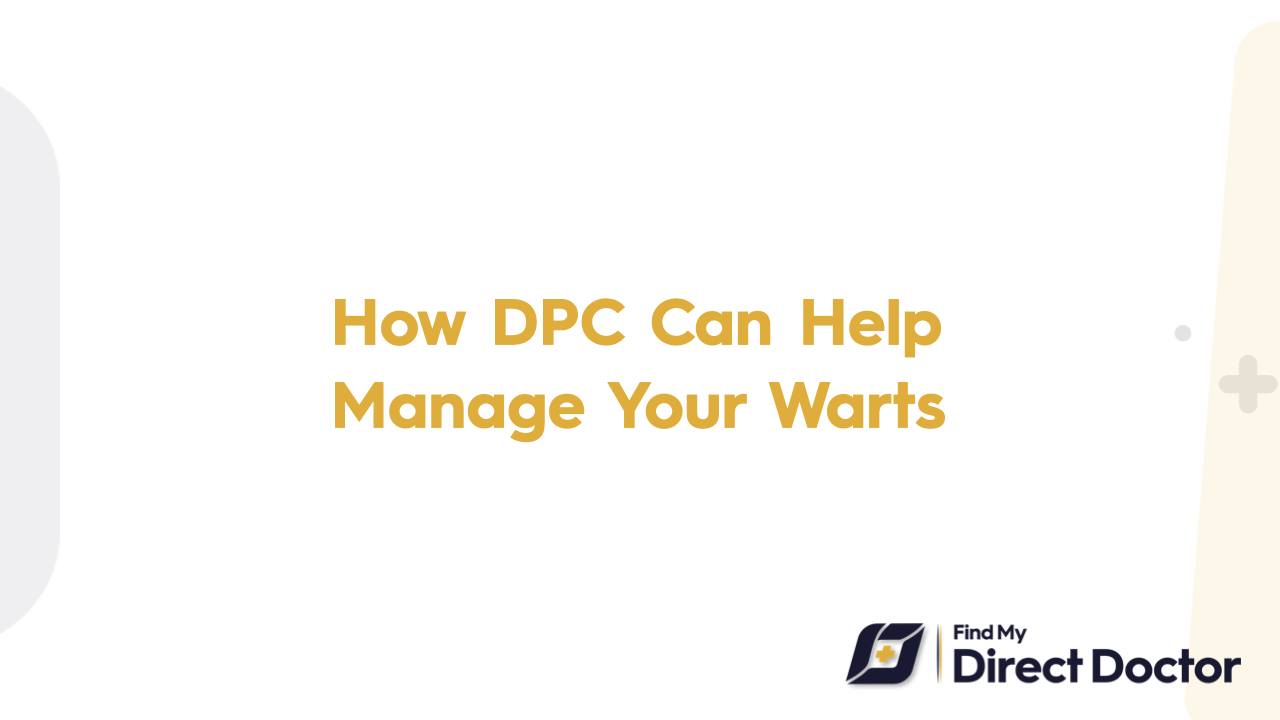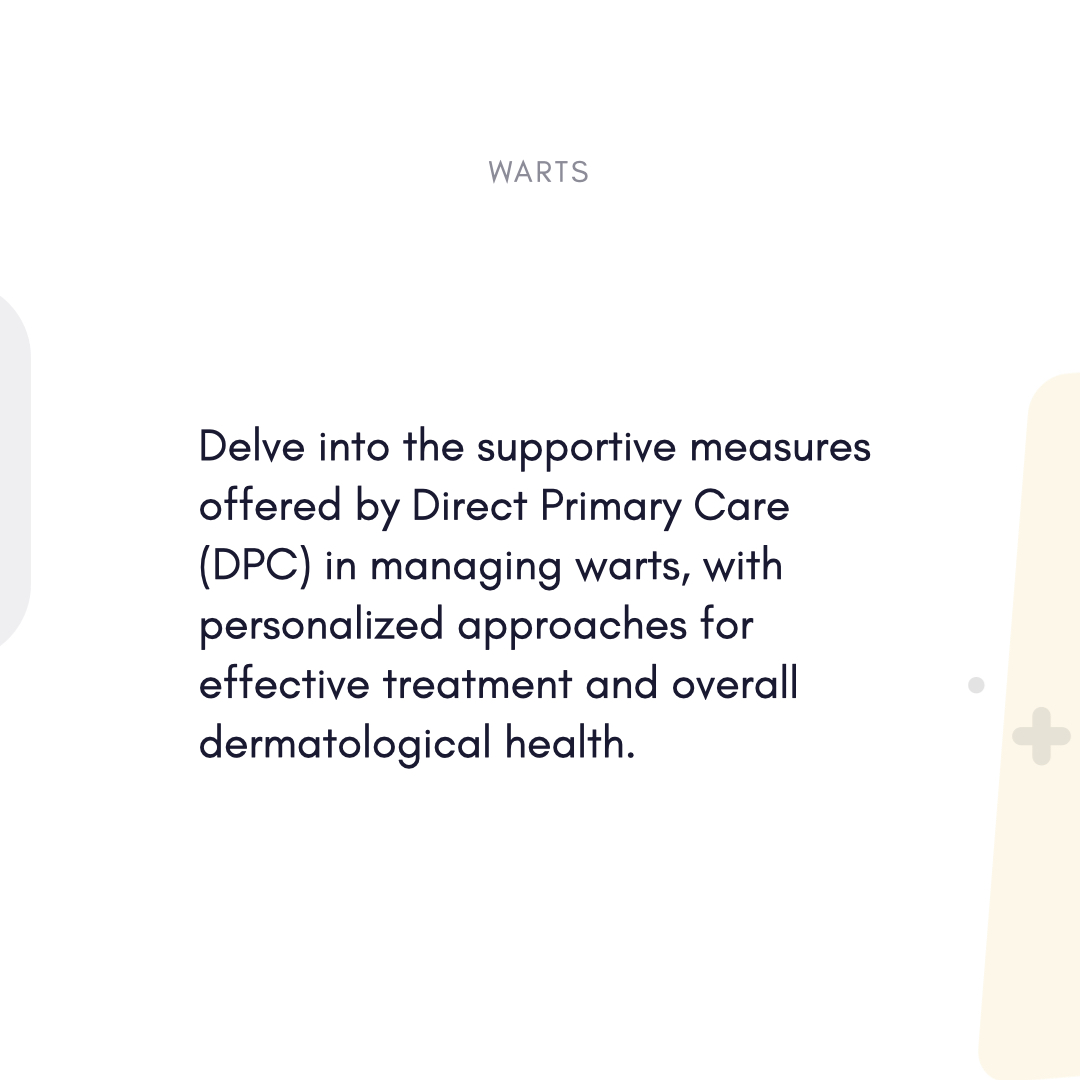Warts and Direct Primary Care (DPC): Effective, Affordable Removal
If you have battled stubborn warts on your hands, feet, or elsewhere, you understand the aggravation of many treatments and slow improvement. Usually requiring persistence to eradicate, warts caused by HPV affect 7–12% of the population. Direct Primary Care (DPC) presents a patient-centered approach to wart management, combining fast treatment, affordable solutions, and techniques to prevent recurrence.

Recognizing Warts and Their Forms
HPV-caused benign skin growths called warts include:
- Common warts: Rough, elevated hand lumps.
- Plantar warts are painful soles' growths.
- Small, smooth clusters on face or legs are flat warts.
One of the challenges is treatment resistance. Especially in immunocompromised patients, recurrence is common.
DPC Turns Around Wart Care
Under the membership model known as Direct Primary Care (DPC), patients pay a monthly fee—usually 50 USD–150 USD—for unlimited access to their main care physician. For those with warts, this means no waiting weeks for dermatology visits, no surprises, and treatment centered on the condition of your skin.
DPC distinguishes itself for these reasons:
1. On schedule, in-office treatments
DPC doctors follow AAD recommendations including:
- Liquid nitrogen application in cryotherapy.
- Salicylic acid kits for household use.
- For resistant warts, electrodessication is recommended.
2. Reasonably Priced, All-Inclusive Treatment
- By providing cryotherapy at 50 USD/session instead of 150 USD+ elsewhere, DPC clinics help to lower costs.
- Offering imiquimod cream at wholesale rates.
- Avoiding ER visits by means of proactive treatment.
3. Constant observation and prevention.
Patients can:
- Change the intensity of their treatment depending on response by 24/7 access to your DPC doctor.
- Discover hygienic practices to stop spread—that is, avoid picking.
- With vitamin C/zinc pills, strengthen immunity.
DPC Benefits for Wart Patients
Customized Removal Strategies
- Each visit, DPC doctors spend 30 to 60 minutes developing plans including:
- For plantar warts, combination therapy calls for Cryo + salicylic acid.
- Topical imiquimod for flat warts modulates immunity.
- Kits for home maintenance: accompanied with thorough application guidelines.
Financial Saving
- There are no co-pays for many cryo visits.
- Kits for salicylic acid at 10 USD instead of 30 USD+ retail.
- Avoidance of in-office treatment specialist fees.
Integrative Health holistically
DPC solves:
- Skin health: Hydrating to stop fissures.
- Addressing deficits (e.g., low zinc) supports immunity.
- Mental health: Getting over shame about obvious warts.
Actual Success Stories
- Case 1: In three cryo sessions using DPC, 25-year-old Sarah cleared hand warts, saving 500 USD in dermatology expenses.
- Case 2: John, 40, saved 1,200 USD by resolving tough plantar warts with DPC's combination treatment.
Ask questions about Warts and DPC.
- Q: Can warts go away on their own?
- A: DPC lowers spread risk and speeds resolution, so yes.
- Q: For several warts, is DPC reasonably priced?
- A: Yes. Members save using home kits and mass cryo sessions.
- Q: Should I be seeing a dermatologist?
- A: DPC schedules discounted consultations for difficult problems.
DPC Is a Win for Wart Patients: Why
Early treatment is stressed by the American Academy of Dermatology to stop spread. DPC presents this through:
- Slashing wait times: Same-week cryo against delays spanning months.
- Involving patients: Preventive education on HPV.
- Cost simplification: One monthly price pays for unlimited treatments.
DPC will help you reclaim smooth skin; warts are not a lifetime annoyance.
Every freeze, every application, every step toward clear skin—you get a partner who treats consistently, innovates strategically, and values your confidence with DPC.






